Herbs Safe for Cats: Exploring Natural Remedies for Feline Health
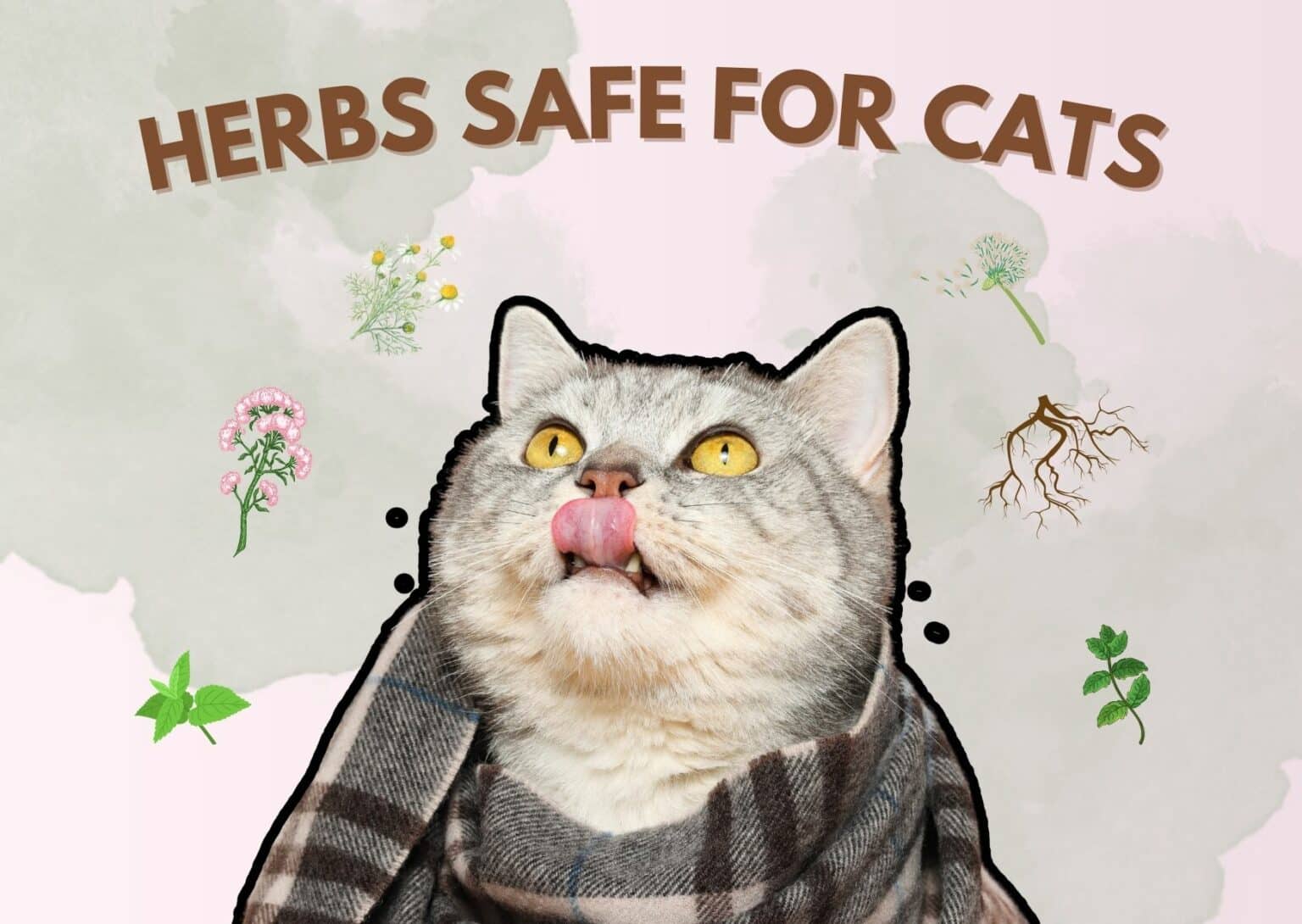
Sharing is Caring!
Introduction
If you are a cat owner, undoubtedly, the well-being of your furry friend is a top priority. In the continuous quest for promoting optimum feline health, one might wonder about the potential role of herbs. This inevitably brings us to the question, ‘Which herbs are safe for cats? To answer this question, let’s embark on a stimulating journey into the realm of herbs safe for cats. Discover how to optimize your cat’s health naturally with the power of herbs. Are you ready?
Understanding the Benefits of Herbs for Cats
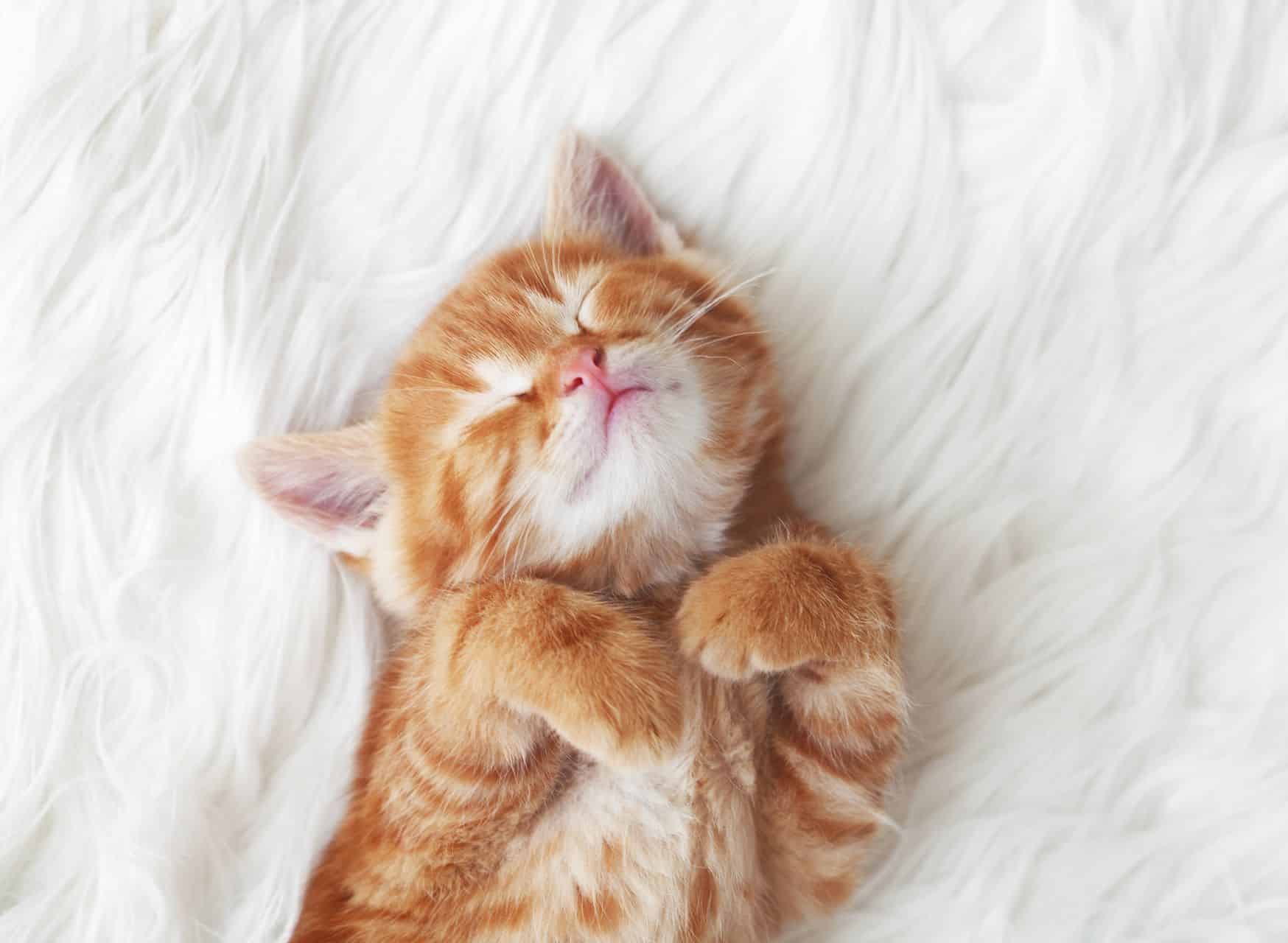
As a devoted cat owner, you naturally want to provide your feline friend with the best possible care. In recent years, many pet parents have started exploring natural remedies for their pets’ health, including the use of herbs. But are herbs safe for cats? Can cats eat herbs? Not all herbs are safe for our furry friends, but many are, and they can offer a myriad of benefits. Let’s explore some of the advantages that safe herbs can provide to your favorite feline.
Promotion of Digestive Health
Certain herbs are known to promote digestive health in cats, much as they do in humans. For example, ginger and peppermint can help soothe an upset cat’s stomach. Slippery elm’s mucilage content makes it an excellent digestive soother and can help with issues like constipation, diarrhea, and inflammation of the digestive tract.
Boost to the Immune System
Herbs like Echinacea, olive leaf, and catnip are rich in antioxidants and can support your cat’s immune system. Whether they’re battling an illness or you simply want to give their immune defenses a boost, these cat-friendly herbs can help.
Relief from Anxiety and Stress
Certain herbs, like chamomile and valerian, have calming properties that can help relieve anxiety and stress in cats. Just like in humans, prolonged stress can have negative impacts on a cat’s health. Offering your kitty these herbs on occasion can help keep them calm and happy.
Natural Flea and Tick Repellent
You may not realize it, but some herb plants safe for cats can act as a natural flea and tick repellent. Catnip is a well-known one. A less-known herb for this purpose is rosemary, which can be steeped in boiling water, strained, and cooled to create a safe, effective flea rinse.
While these are just a few examples of the benefits herbs can offer, it’s crucial to remember that not all herbs that are safe for cats. Always do your research or consult with a veterinarian before introducing new herbs into your cat’s diet. The right herbs can indeed be a wonderful addition to your cat’s routine, providing both health benefits and an enjoyable snack.
Herbs Safe for Cats: Top Choices and Their Benefits
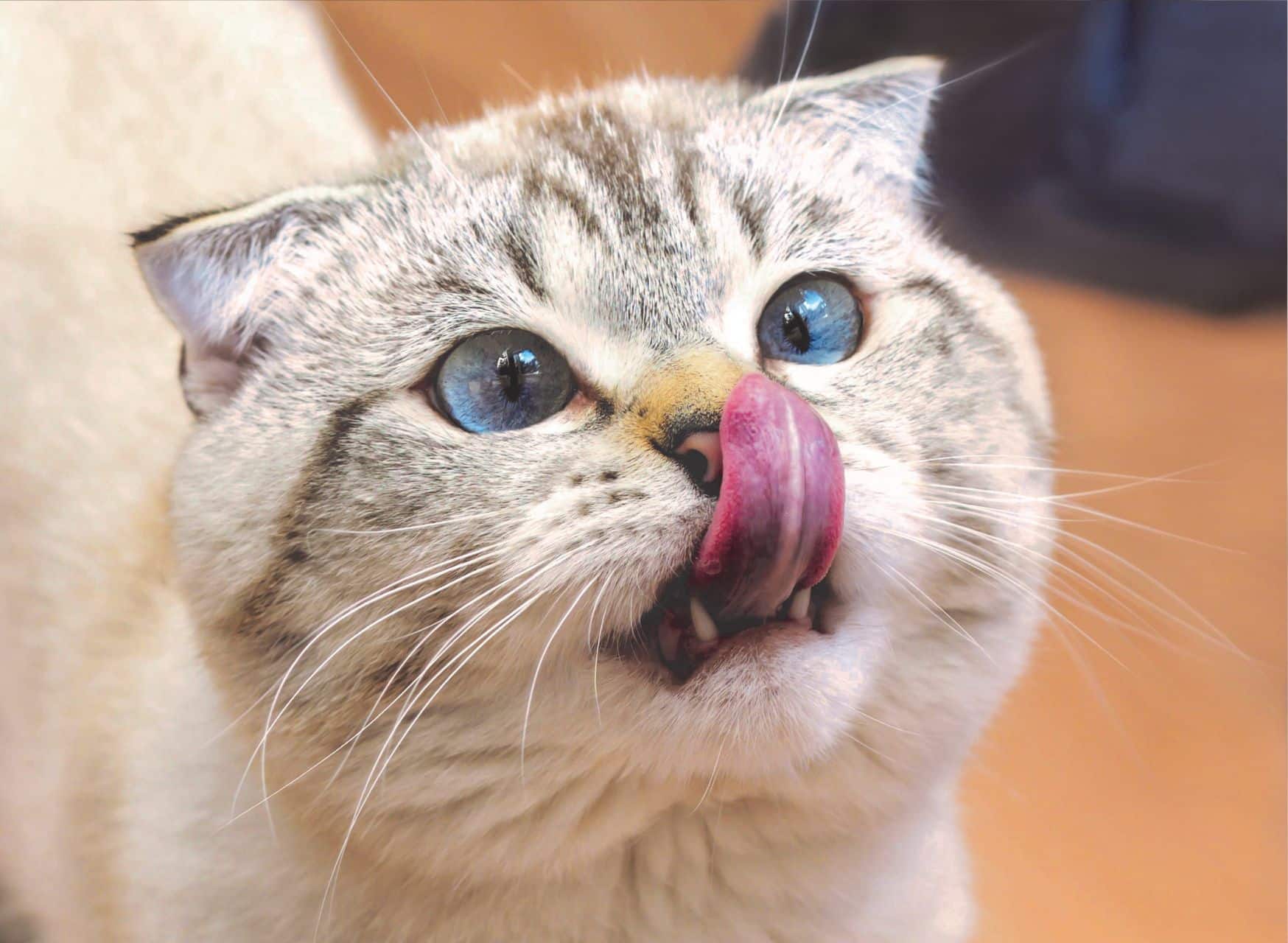
Catnip (Nepeta cataria)
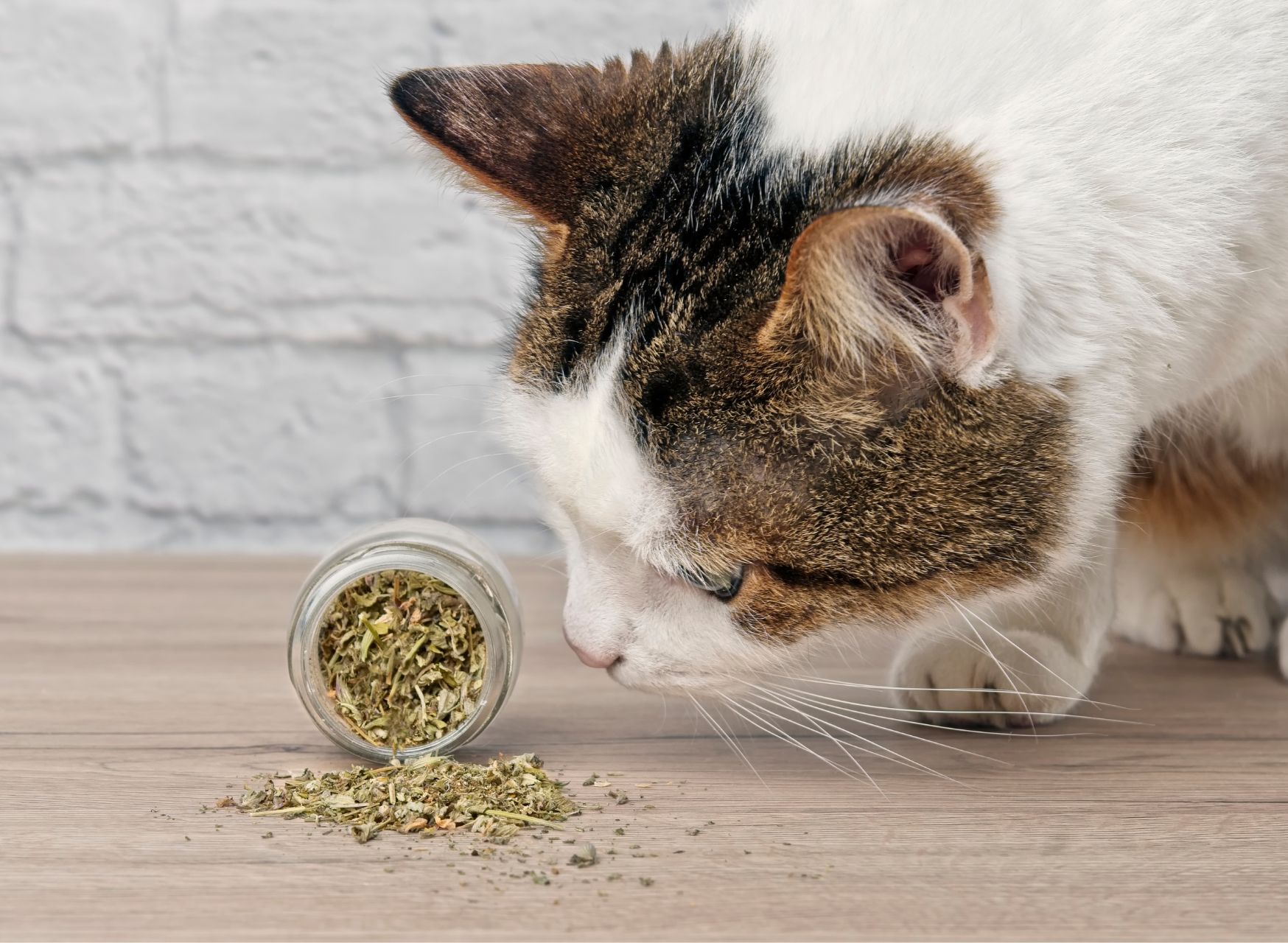
Arguably the most famous herb among cat owners is Catnip. This member of the mint family, native to Europe, Asia, and Africa, is known for its euphoric and hallucinogenic effects on cats. Not only can it act as an effective stress reliever, but it also encourages play and activity, thus promoting physical exercise.
Valerian root (Valeriana officinalis)
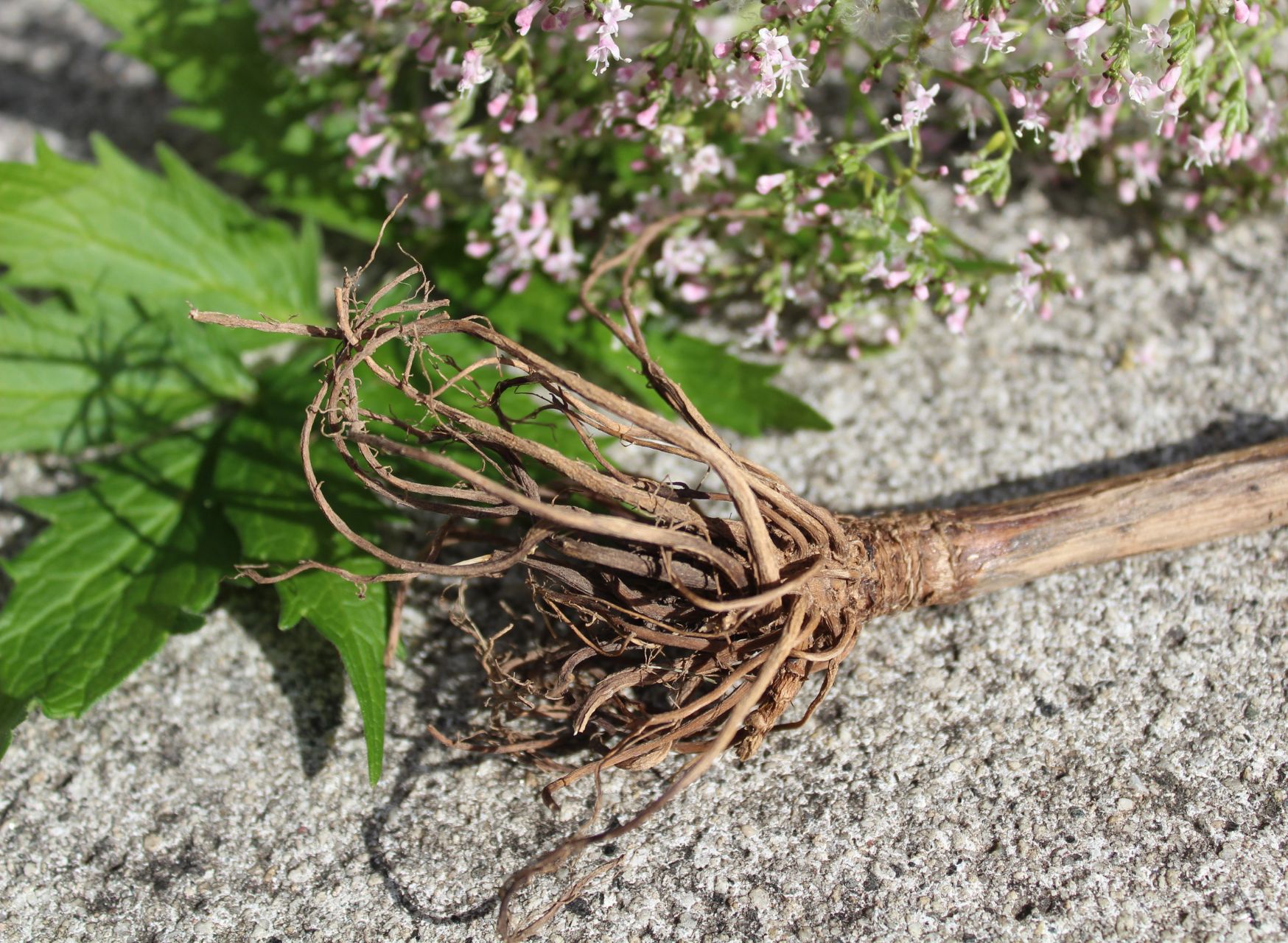
Valerian root, often termed as cat’s second favorite herb next to catnip, can serve as a nice treat. Less known but just as enticing for cats, this herb is believed to help soothe anxiety and stress, thanks to its calming properties.
Chamomile (Matricaria recutita)
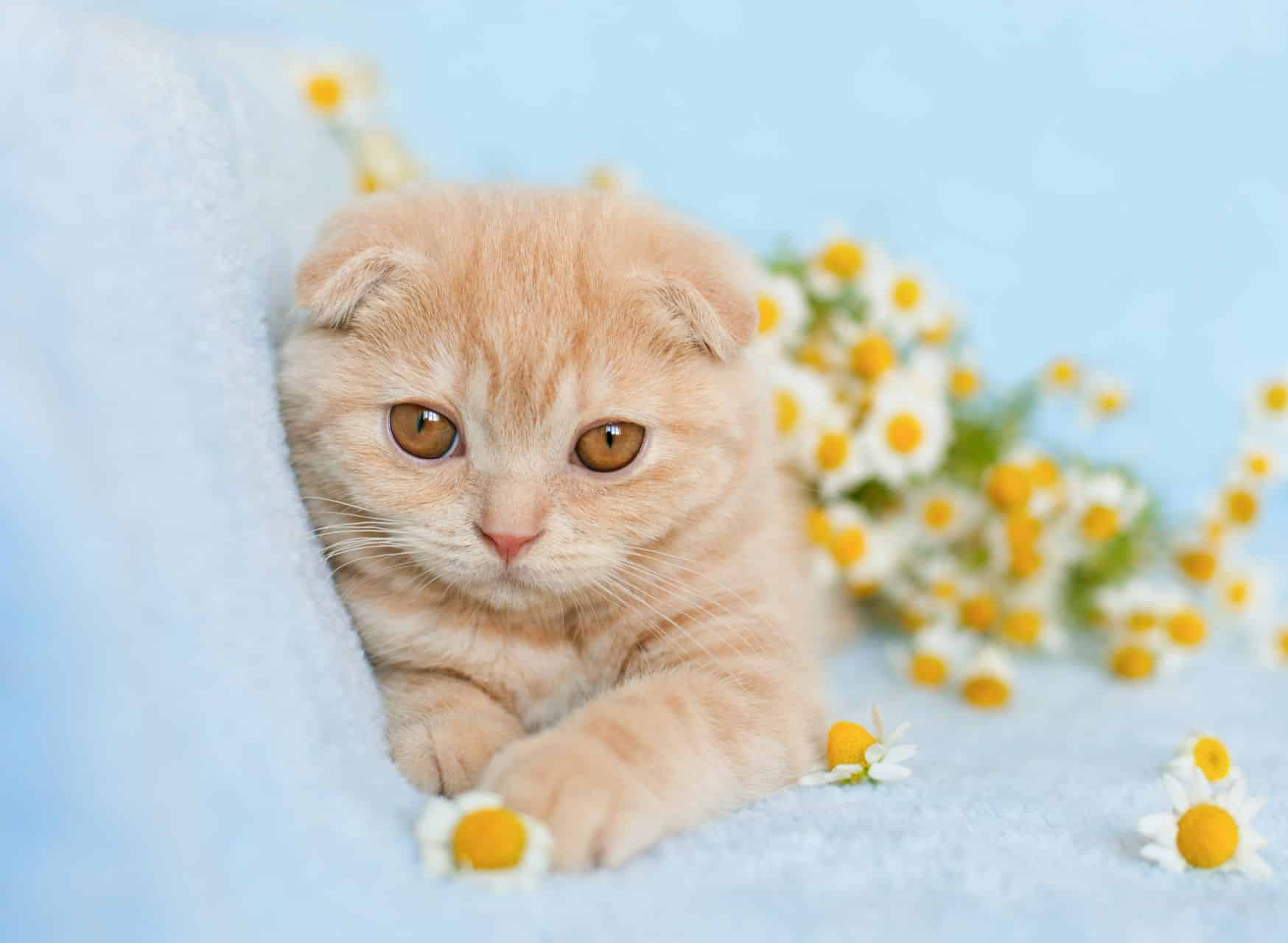
Chamomile has long been celebrated for its medicinal values. Whether it’s easing digestive issues, reducing inflammation, or calming anxieties, chamomile is definitely one of the cat friendly herbs that pioneers a more natural approach to feline health.
Dandelion (Taraxacum officinale)
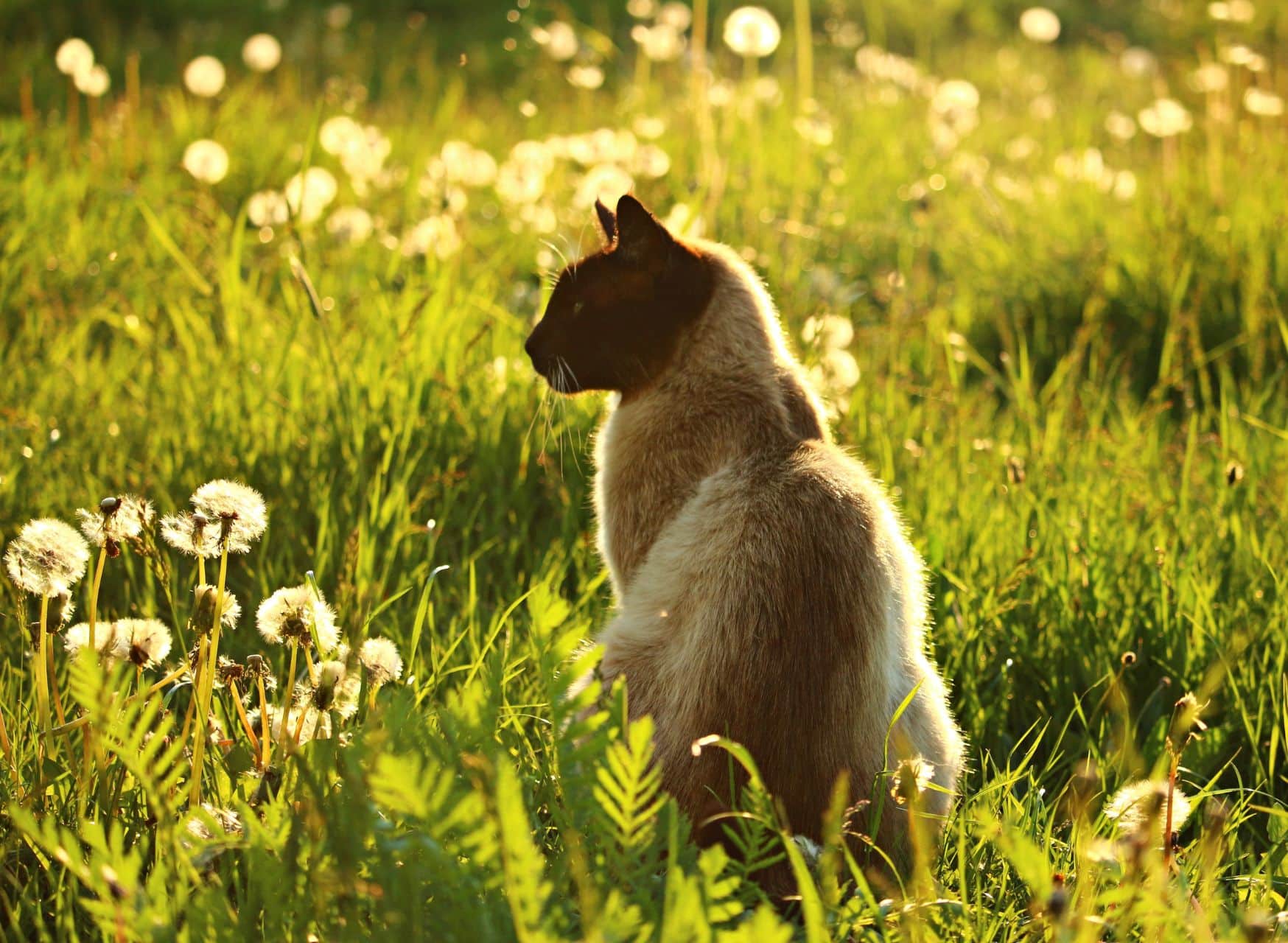
Despite being commonly deemed as a pesky weed, Dandelion takes a reputable spot in our list of herbs safe for cats. This plant’s roots and leaves are high in potassium and can help promote renal function and support a healthy urinary system.
Licorice root (Glycyrrhiza glabra)
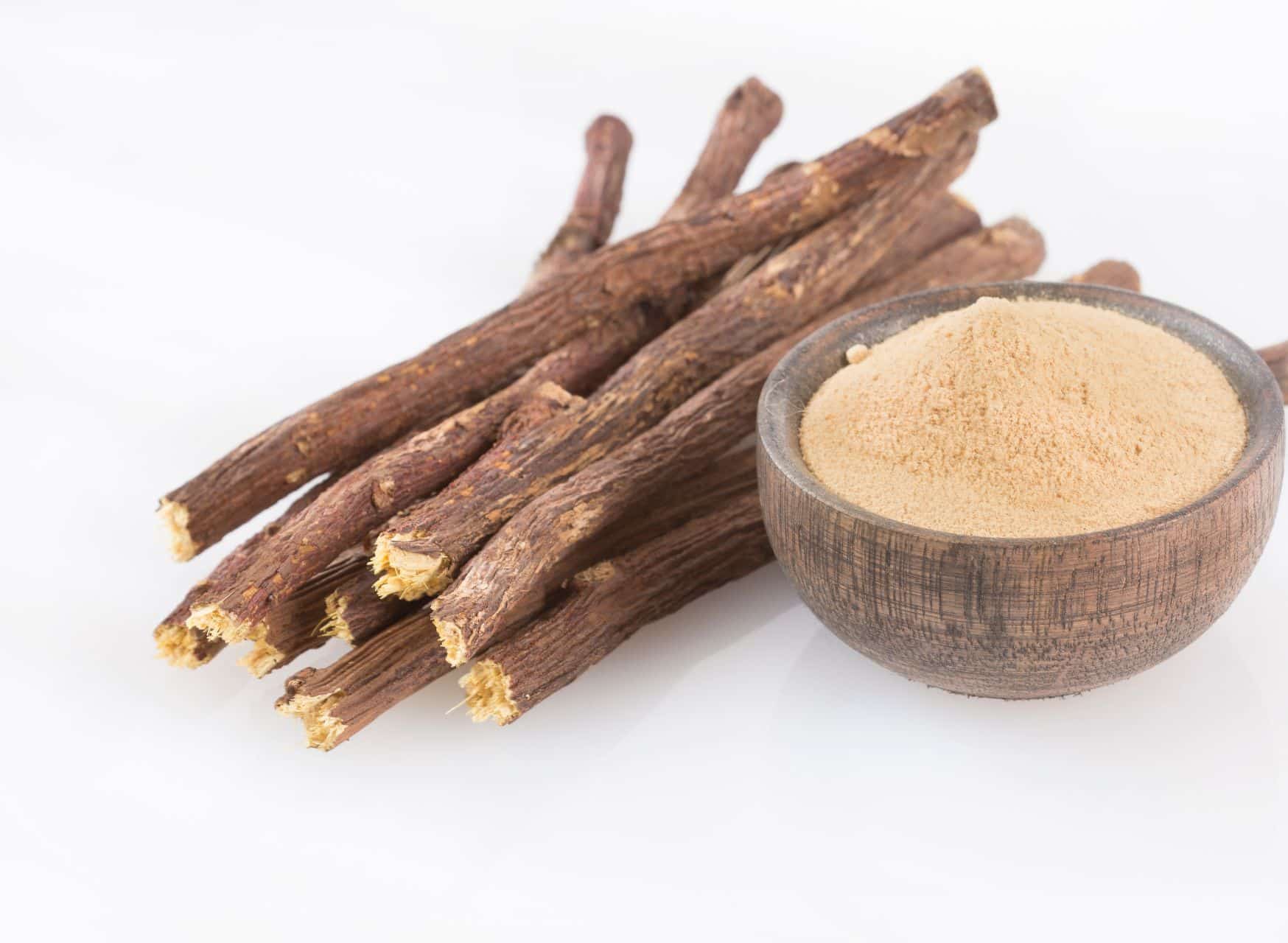
Licorice root, often used in traditional medicine, holds anti-inflammatory and immunomodulatory effects, thus aiding in immune health and allergy management. Though this herb is generally safe, it’s important to use it under the guidance of a veterinarian since excessive consumption can lead to problems in sodium and potassium balance.
Peppermint (Mentha piperita)

So, can cats eat herbs like Peppermint (Mentha piperita)? You’ll be surprised to know, this is indeed one of the herbs safe for cats. First and foremost, it’s a good digestive aid. If your cat is experiencing an upset stomach, adding a little bit of peppermint to their diet may help soothe their discomfort. And that’s not all! Peppermint is also known for its mild sedative properties, promoting peaceful sleep and helping to alleviate symptoms of stress and anxiety.
No matter how advantageous these herbs might be, remember that moderation is the key. Now that you’re quite familiar with some herbs that are good for cats, you might want to explore incorporating them into your pet’s routine. But remember, always consult your vet before introducing any new elements to your cat’s diet. What’s important is that you’re always making the safest and healthiest choices for your precious feline companion.
Safe Administration and Precautions
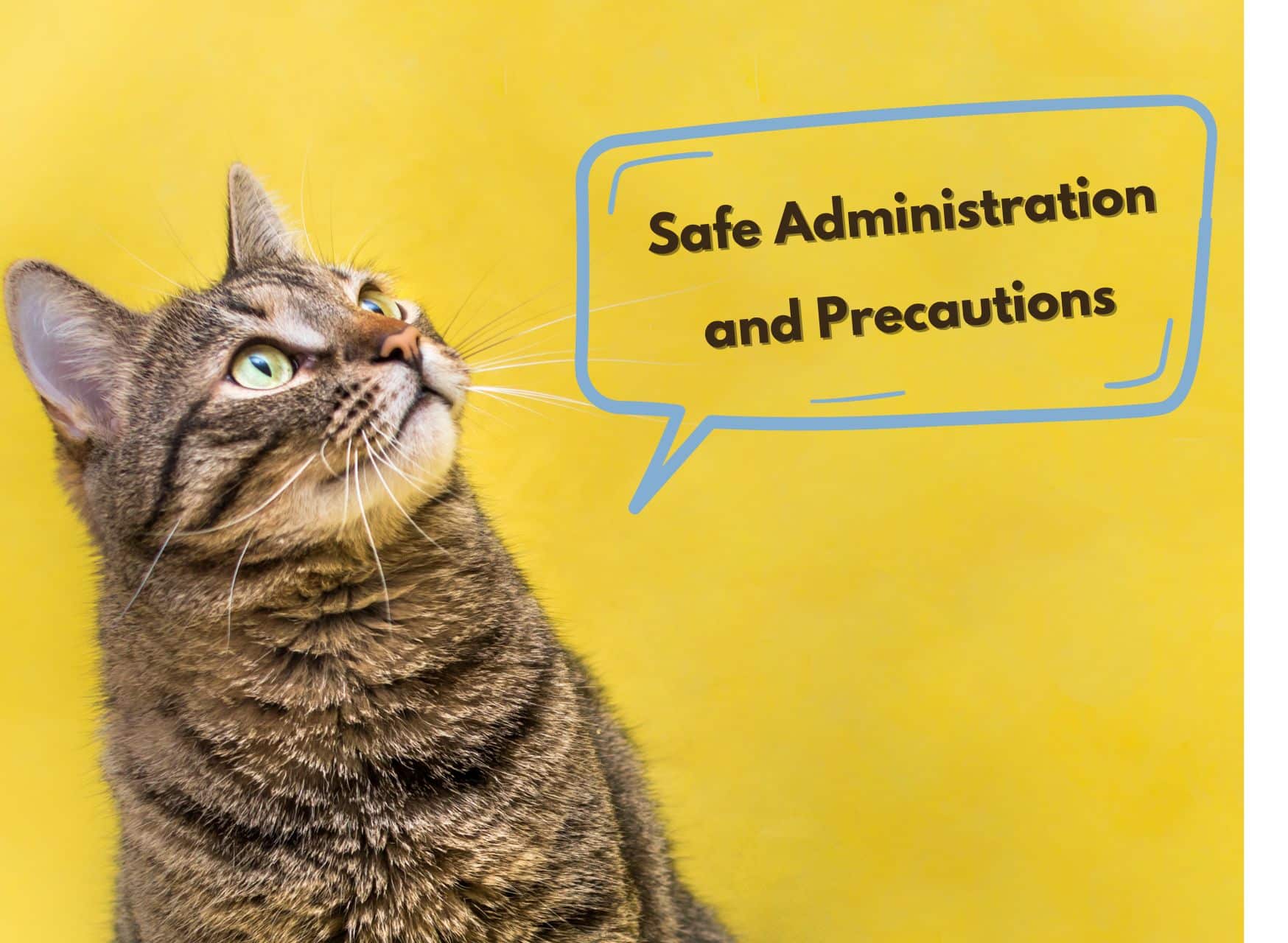
Before introducing a new herb into your cat’s diet, it’s advisable to start with small amounts and closely monitor your cat’s reaction. Introducing these herbs gradually will allow you to observe any potential adverse reactions or allergies. Do remember that every cat is unique and what might work for one feline, might not necessarily work for another.
- Consult with a Veterinarian: A common question that cat owners often ask is, “Can cats eat herbs?” and while the answer is generally yes, it should be underscored that vet consultation is essential before starting any herbal regimen. Your vet can provide accurate information based on your cat’s behavior, health, age, breed, and other individual needs.
- In administering herbs to your cats, make sure you are using the correct parts of the plant: Some parts may be more potent or could potentially be toxic. Are herbs bad for cats? Not necessarily. But, improper usage or overdose can certainly lead to health problems, which emphasizes the importance of proper dosage.
- Avoid Certain Herbs: As you explore herbs that are good for cats, it’s also important to acquaint yourself with the dangerous ones. Herbs like onion, garlic, tea tree, and pennyroyal, among others, not only have smells that cats hate but are also toxic to their health. Learn to distinguish these potentially harmful herbs to prevent any unwanted mishaps.
Herbal treatments for cats should never be a replacement for professional veterinary care. If your feline friend is suffering from a serious ailment or chronic disease, herbs can offer supportive care, but they are not a cure-all solution. Lastly, when purchasing herbs for your cats, make sure you select high-quality, organic herbs free from pesticides and other harmful chemicals. Adhering to the “quality over quantity” principle is key to ensuring that your feline friend reaps the maximum benefit from these natural remedies.
Conclusion
In conclusion, incorporating herbs safe for cats into your cat’s healthcare routine offers numerous benefits, including promoting digestive health, boosting the immune system, relieving anxiety, and acting as natural flea and tick repellents. Opting for natural remedies like herbs reduces the risk of adverse side effects associated with pharmaceutical options and allows for a holistic approach to your cat’s well-being. However, it is crucial to consult with a veterinarian before introducing new herbs or supplements to your cat’s diet, as not all herbs are safe for cats and individual sensitivities and health conditions must be considered.
By exploring the world of herbs safe for cats and working with your veterinarian, you can harness the power of nature to support your cat’s health and provide them with a happy and fulfilling life. Embracing natural remedies and creating a personalized healthcare plan that incorporates herbs will contribute to your cat’s overall vitality and enhance their quality of life. Your feline friend will appreciate the benefits of these safe and holistic approaches to their well-being.
Sharing is Caring!
About The Author
PawCool Team
Related Categories: Cat Health & Care | Cat Stories | Cats
Latest Articles

Never Miss A Thing!
All pet stories & guides you care about








